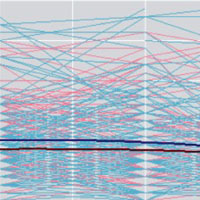Going through the lockdown: a longitudinal study on the psychological consequences of the coronavirus pandemic

Submitted: September 7, 2020
Accepted: November 27, 2020
Published: January 20, 2021
Accepted: November 27, 2020
Abstract Views: 3245
PDF: 821
SUPPLEMENTARY: 100
HTML: 19
SUPPLEMENTARY: 100
HTML: 19
Publisher's note
All claims expressed in this article are solely those of the authors and do not necessarily represent those of their affiliated organizations, or those of the publisher, the editors and the reviewers. Any product that may be evaluated in this article or claim that may be made by its manufacturer is not guaranteed or endorsed by the publisher.
All claims expressed in this article are solely those of the authors and do not necessarily represent those of their affiliated organizations, or those of the publisher, the editors and the reviewers. Any product that may be evaluated in this article or claim that may be made by its manufacturer is not guaranteed or endorsed by the publisher.
Similar Articles
- Gaia Albano, Rubinia Celeste Bonfanti, Salvatore Gullo, Laura Salerno, Gianluca Lo Coco, The psychological impact of COVID-19 on people suffering from dysfunctional eating behaviours: a linguistic analysis of the contents shared in an online community during the lockdown , Research in Psychotherapy: Psychopathology, Process and Outcome: Vol. 24 No. 3 (2021)
- Giorgia Margherita, Benedetta Muzii, Alessia Caffieri, Adriana Di Francia, Brenda Somma, ‘Isolated together’: online group treatments during the COVID-19 pandemic. A systematic review , Research in Psychotherapy: Psychopathology, Process and Outcome: Vol. 25 No. 3 (2022): SPECIAL ISSUE: "Group psychotherapy: between settled benchmarks and new horizons"
- Samantha Reis, Emily L. Matthews, Brin F.S. Grenyer, Characteristics of effective online interventions: implications for adolescents with personality disorder during a global pandemic , Research in Psychotherapy: Psychopathology, Process and Outcome: Vol. 23 No. 3 (2020)
- Federica Bonazza, Lidia Borghi, Eugenia Cao di San Marco, Kyrie Piscopo, Francesca Bai, Antonella d’Arminio Monforte, Elena Vegni, Psychological outcomes after hospitalization for COVID-19: data from a multidisciplinary follow-up screening program for recovered patients , Research in Psychotherapy: Psychopathology, Process and Outcome: Vol. 23 No. 3 (2020)
- Lidia Borghi, Federica Bonazza, Giulia Lamiani, Alessandro Musetti, Tommaso Manari, Maria Filosa, Maria C. Quattropani, Vittorio Lenzo, Maria Francesca Freda, Daniela Lemmo, Emanuela Saita, Roberto Cattivelli, Gianluca Castelnuovo, Elena Vegni, Christian Franceschini, Dreaming during lockdown: a quali-quantitative analysis of the Italian population dreams during the first COVID-19 pandemic wave , Research in Psychotherapy: Psychopathology, Process and Outcome: Vol. 24 No. 2 (2021): SPECIAL ISSUE "Working on dreams, from psychotherapy to neuroscience"
- Cristina Marogna, Chiara Masaro, Vincenzo Calvo, Simona Ghedin, Floriana Caccamo, The extended unconscious group field and metabolization of pandemic experience: dreaming together to keep cohesion alive , Research in Psychotherapy: Psychopathology, Process and Outcome: Vol. 25 No. 3 (2022): SPECIAL ISSUE: "Group psychotherapy: between settled benchmarks and new horizons"
- Chiara Rossi, Francesca De Salve, Martina Agliati, Osmano Oasi , Coping strategies and mental health: A web-based survey among the Italian population dealing with COVID-19 , Research in Psychotherapy: Psychopathology, Process and Outcome: Vol. 25 No. 2 (2022)
- Violeta Stefania Rotărescu, Diana Bianca Matei, Ioana Alexandra Mircea, Andreea Maria Mirescu, Bogdan George Nedelescu, Daniela Georgiana Nedelea, Alexandra Nicoleta Raluca Neagu, Alexandru George Necșulescu, Gabriel Angelo Oteșanu, Lucian Constantin Tudor, How anxious did you feel during lockdown? The roles resilience, living environment, and gender play on the level of anxiety state during pandemic isolation , Research in Psychotherapy: Psychopathology, Process and Outcome: Vol. 23 No. 3 (2020)
- Cecilia Giordano, Ivan Ambrosiano , Maria Teresa Graffeo, Alessandro Di Caro, Salvatore Gullo, The transition to online psychotherapy during the pandemic: a qualitative study on patients’ perspectives , Research in Psychotherapy: Psychopathology, Process and Outcome: Vol. 25 No. 3 (2022): SPECIAL ISSUE: "Group psychotherapy: between settled benchmarks and new horizons"
- Elena Ierardi, Marta Bottini, Emanuele Preti, Rossella Di Pierro, Fabio Madeddu, Cristina Riva Crugnola, Attachment styles, mental health, and trauma during the first wave of COVID-19 pandemic in an Italian adult population , Research in Psychotherapy: Psychopathology, Process and Outcome: Vol. 26 No. 3 (2023)
You may also start an advanced similarity search for this article.

 https://doi.org/10.4081/ripppo.2020.494
https://doi.org/10.4081/ripppo.2020.494






